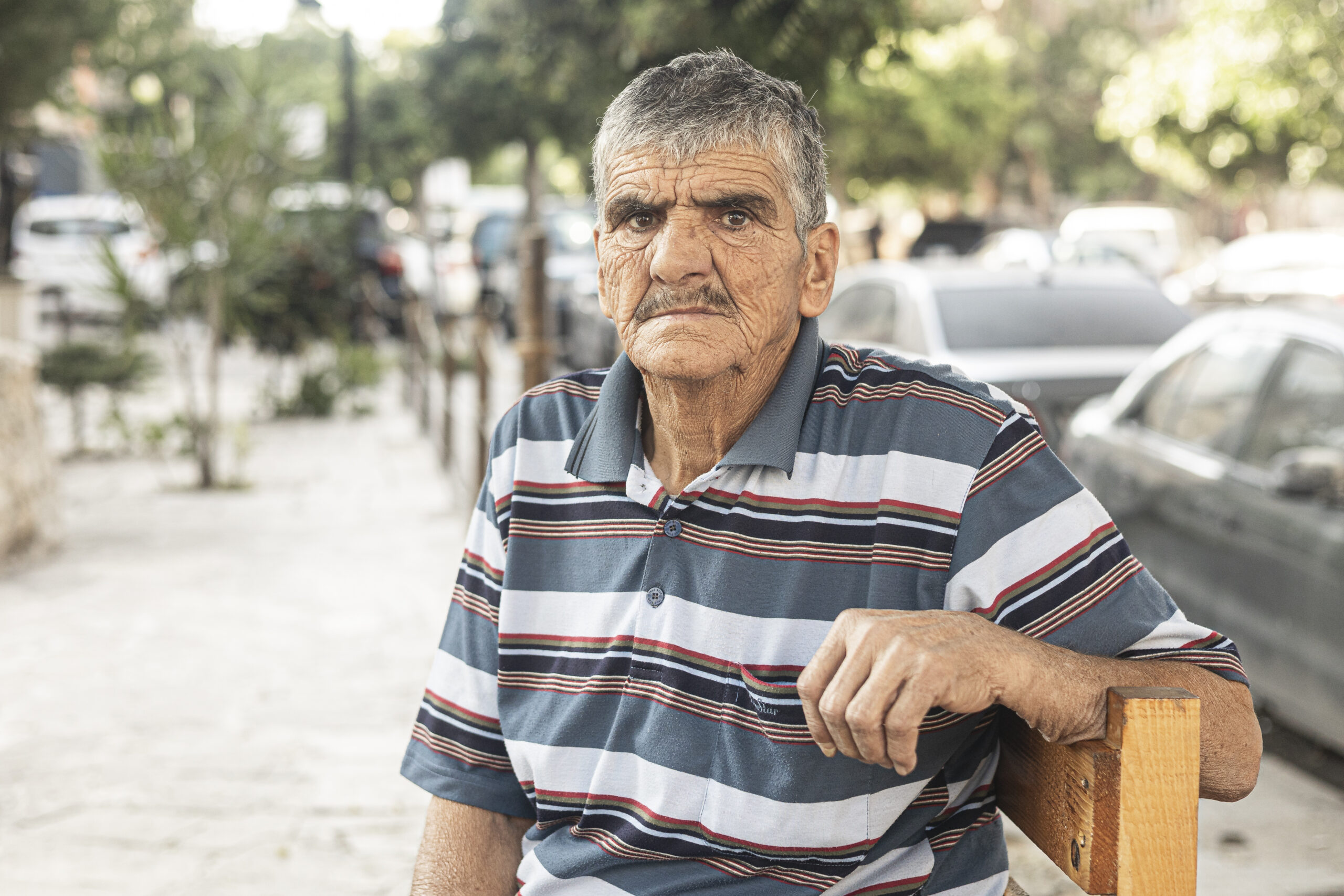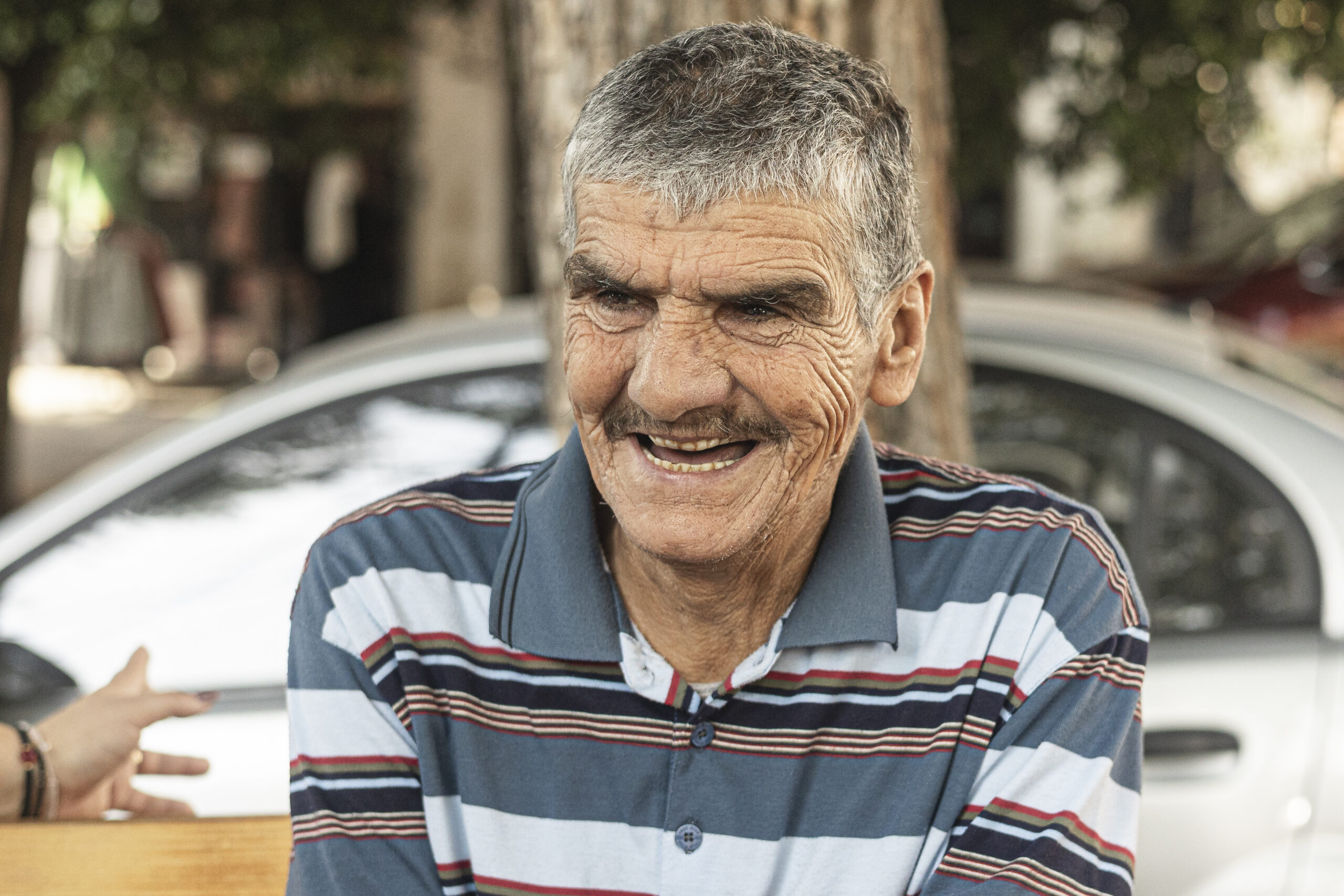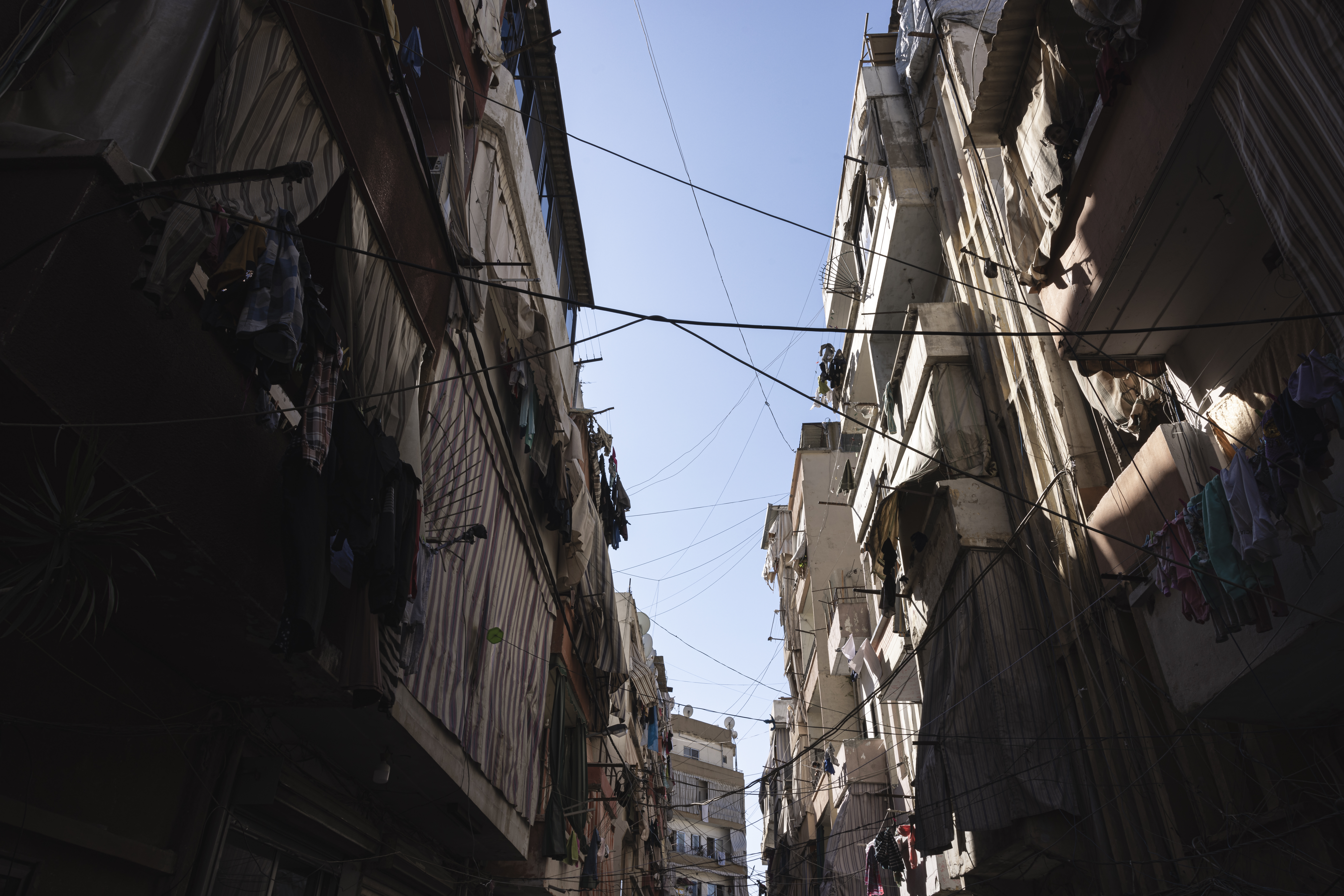
My name is Samira, I’m 72, and I want to tell you about my husband, Moussa. We’ve shared a lifetime together, and he has always been my strength and my companion.
My husband is seventy-five years-old and is a man who has lived through many challenges. But nothing could have prepared us for this war. Three days into the conflict, he looked at me with that quiet determination of his, and we left Kfarrouman, our village in South Lebanon, under a sky filled with the terrifying sound of airstrikes. We brought nothing with us, leaving behind our memories, our small home, and everything we had worked for.
In Beirut, we didn’t find any apartments to stay in, so we found ourselves on the roof of a building, crowded with other families also searching for safety. We only had two mattresses and no blankets to shield us from the cold. Moussa shivers through those nights, his heart weak and his memory fading due to Alzheimer’s. But he holds on, constantly asking, “When can we go back?”

I wish I had an answer. Our village has no water, no food, no electricity. Going back to what? Still, every day he talks about our home. I think it’s what keeps him going. He wants to see the garden again, to hear the familiar sounds of our neighborhood, to feel like he belongs somewhere.
Living like this isn’t easy on either of us. We are both aging, and every day feels like a battle against time and circumstances. But more than anything, we are holding on to the day we can return. It’s our last hope. I pray for him, for us, and for everyone like us who longs to find their way back to the life they were forced to leave behind.

Learn more about our work in Lebanon
Nearly 180,000 people are now living in temporary shelters across Lebanon, many of which do not have basic supplies and proper facilities for cooking and hygiene. The situation is especially dire for older people, and your support now is invaluable in helping to address their urgent needs.
Source: IDRAAC
